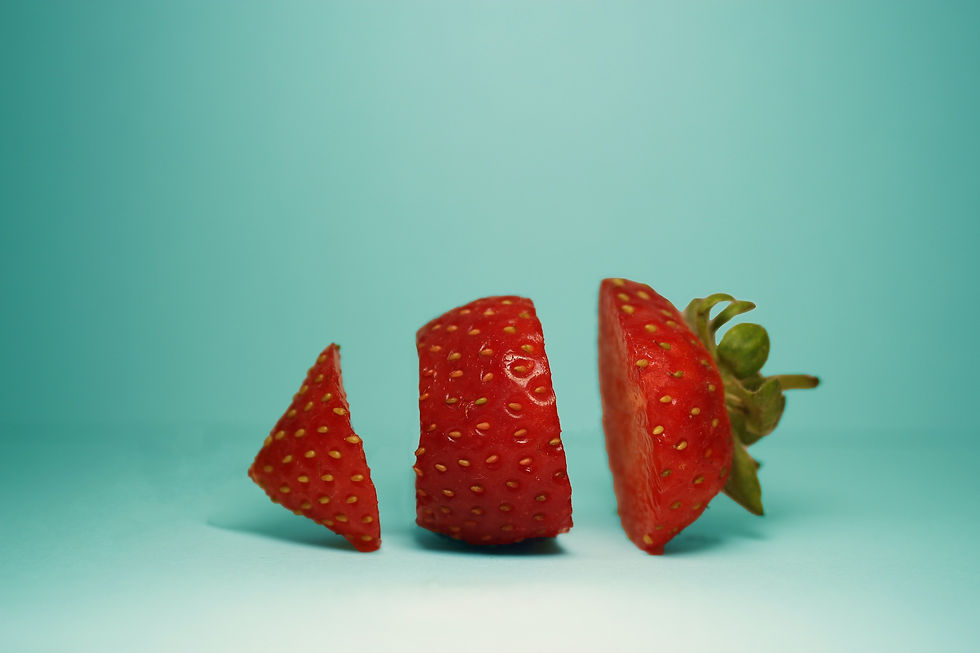The Ingredient Most People are Missing in Their Approach to Food
- Paige Smathers

- Jul 22, 2019
- 3 min read

Self-compassion is the foundation of the work I do with nutrition. It might sound strange coming from a registered dietitian, but it's absolutely critical to develop self-compassion as you begin (or continue) to work on your nutrition. Otherwise, you run the risk of your nutrition changes playing out like every other diet has in the past: leaving you feeling guilty, defeated, and frustrated.
Whether it's subconscious or not, most of us are operating on this basic premise with food: if I'm just mean enough to myself, maybe I'll finally get the whole 'healthy eating' thing right this time.
That couldn't be further from the truth. Criticizing, berating, or bullying isn't going to help improve nutrition and eating. It's only going to lead to more pendulum swinging between deprivation and bingeing. The answer to food chaos isn't more restriction and rules—it's more self-compassion.
And, the best part is this: self-compassion is a skill you can develop. It’s not something you’re born with or not—you can actively get better at it through practice. And when we approach food and our self-care from a place of compassion, we settle into a more healthy, realistic, and sustainable approach to food.
So, what is self-compassion? In essence, self-compassion is simply learning to treat and care for yourself like you would someone you truly love. How would you talk to your best friend? How would you feed your child? Self-compassion asks those questions and turns them on yourself: why is there a gap in how you treat and care for others versus how you treat and care for yourself? Can you learn to close that gap through practice?
Practice is a key word when discussing self-compassion. We're so indoctrinated from diet culture to believe that we should see instant results. In healing your relationship with food, it's best to make peace with the idea that there is no easy. Nurturing a healthy relationship with food takes time and effort, but it's SO worth it.
Here are four things you can do to practice self-compassion in general and with food:
Institute a daily writing practice: take 5-10 minutes each day to write. Don't worry about who your audience is or who will read it, just write. Write about what's on your mind or what self-compassion means to you. Writing can help get the thoughts out of your head and onto paper and can be a powerful tool in navigating paradigm shifts like working toward self-compassion. Check out this podcast episode for more exploration of how to institute a writing practice into your life.
Sit down to actual meals: so many people eat on the go, never really taking time to connect to their needs and satisfy their body's hunger. Taking time to eat 'real meals' where you sit down and eat 3-4 different foods from your plate can make a huge difference in your relationship with food. It feels so nurturing and positive to take time to meet your needs. You can practice self-compassion with regular, reliable meals.
Meditate: this could be guided meditations with an app like Calm or Headspace or it could be simply sitting still and coming back to your breath. When your mind wanders, practice having compassion for that and let it wander where it will. Notice your judgement as it comes up and use the time you're meditating to practice coming back to compassion.
Take an online course: Dr. Kristin Neff is the queen of self-compassion and a real pioneer in this space. Check out her work here. Also consider joining my online course Positive Nutrition for Life: Heal Your Relationship with Food. In the course I provide extensive education and tools for developing self-compassion with food and body. Don't feel badly if you aren't skilled with self-compassion—it's okay to need a little outside help to learn something you may have never heard of or practiced before.
These are just some ideas to get you started. Ultimately, self-compassion is a practice and a continual effort to nurture a positive, sustainable and healthy approach to food and your own self-care. You've got this!
I was so honored when KSL's Studio 5 asked me to come back on their show to talk about the missing ingredient from most people’s approach to food. It’s so heart warming to me to know that many of you are insisting on more depth, meaning, and practicality from media outlets’ coverage of nutrition and health and I’m so glad KSL is taking the leap of faith to explore more nuance with our relationships with food. To view the segment about self-compassion, click here.







Informative Article blog, This article is about the crookery item which is very useful. we are also here to provide you the top quality MUGs which are made of Hygenic material, different designs, and sizes. I suggest you click this link Best mugs guide for any query if you want to get super quality MUGs